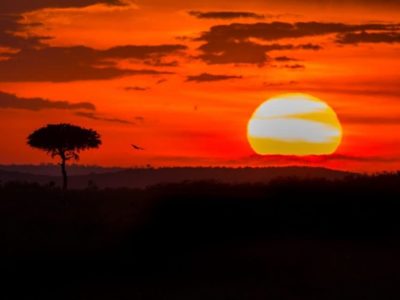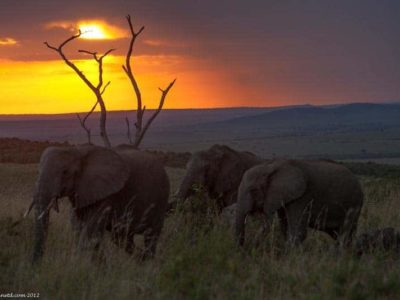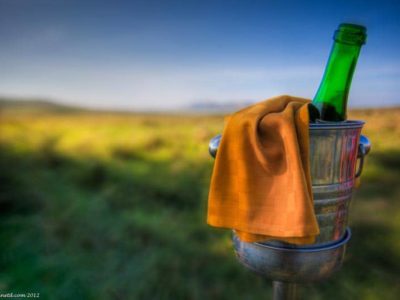I Dream of Africa. Travel in Kenya is exactly what one hopes for when going on safari in Africa.
The people are friendly, the scenery is spectacular and even though the country is progressing at a rapid pace, it still feels as if you have stepped back in time.
This Kenya travel guide will help you plan your next vacation.
Table of contents
Table of Contents
Fast Facts about Kenya
- Kenyan power voltage is 240 V 50 Hz; Plug G.
- The Kenyan currency is the shilling and is around 86 shillings for 1 USD
- Virtually all banks in Kenya now have ATMs at most branches. Barclays Bank has easily the most reliable machines for international withdrawals. Standard Chartered and Kenya Commercial Bank ATMs also accept Visa but not the other major providers and are more likely to decline transactions.
- The best place to change money are a foreign exchange or “forex” bureaus as they do not charge commission. The exchange rates are published in the Daily Nation newspaper.
- The water is not potable; drink only bottled water. Or bring a Steripen to purify your water and save the environment.
- SIM Cards: If you are planning on staying in Kenya for longer than a week, you can get a SIM Card Safaricom, Airtel and Telcom are good choices. You can get them in Nairobi or at the airport arrivals.
- Only select stores sell SIM cards but you can buy refill cards almost anywhere!
- SIM Cards: You can get a local sim card from Vodafone or Orange in Cairo. We suggest getting a SIM card at the airport when you arrive.
Things to See and Do in Kenya
- Champagne and a Hot Air Balloon – travel in style over the Masai Mara
- Go on a Safari in the Masai Mara – not only will you see all the big animals of Africa but you’ll witness some of the most beautiful sunsets on the planet.
- Visit Kenya’s Amboseli National Park – to see the magnificent population of elephants and witness the extraordinary view of Mount Kilimanjaro.
- Meet the Maasai People of Selenkay – a camp where travelers can learn about the Maasai culture while giving back to the community
- Fairmont The Norfolk: A Part of Kenyan History – stay at the Fairmont, a hotel that played a critical role in Kenyan history.
- Lake Nakuru – meaning “dust” or “dusty place” in the Maasai language, Lake Nakuru National Park is famous for wildlife including the thousands of flamingos nesting along the shores.
- Born Free Lives on in Kenya – In the 60s a movie was released named Born Free based on the lives of Joy and George Adamson. The Elsamere Home in Kenya still lives on and focuses specifically on conservation.
Kenya Travel Guides
Budgeting
Accommodation
Budget: You can find hostels in the range of 1,250-2,800 shillings per night. Stay in centrally located hostels and enjoy free Wi-Fi, security lockers, complimentary breakfast, hot showers, and your choice of a dorm or private room.
Mid-Range: For mid-range hotels, expect to pay around 2,800-11,500 shillings per night. Enjoy private rooms and suites with TVs and minibars, a fitness center, a pool, a hotel restaurant and bar, and free Wi-Fi.
High-End: Five-star hotels will cost around 13,000-53,000 shillings per night. These hotels come with room service, elegant hotel restaurants and polished bars, private suites with living rooms, spa services, a pool, and a sauna.
Food
The cuisine of Kenya varies depending on the region. Popular staples include cereals like maize and millet, meats, and vegetables. Seafood is eaten frequently in coastal regions.
Ugali (cornmeal porridge) served with sukuma wiki (collard greens with onions and spices), kachumbari (tomato and onion salad), and maharagwe (bean stew) is a popular dish. Kenya has a variety of street vendors.
When out and about, look for Mahindi (grilled maize) or Mshikaki (skewered and grilled beef or goat meat on a stick). There are restaurants where you can try more Kenyan cuisine. In total, expect to pay around 2,550 shillings per day for food.
The Best Ways to Get Around Kenya
Getting to Kenya:
Flights: The main airport to fly into is Jomo Kenyatta International Airport, located 9 miles from Nairobi. Other airports include Moi International Airport (5.5 miles from downtown Mombasa) and Kisumu International Airport (5.5 miles from the city center). You can check for the best flights to Kenya on Skyscanner.
Transportation:
Buses: Buses are a cheap way to get around, especially in major areas like Nairobi. You can find buses for both shorter and longer distances. A typical fare for a local bus is 150 shillings, while going between cities can cost about 600 shillings. If you are traveling long-distance, it helps to book a ticket at least a day in advance.
Taxis: Taxis are another way to get around. A typical taxi ride will cost 400 shillings. Since they are usually not metered, make sure to agree on the price before starting your trip.
Car Rental: To rent a car, you need to be at least 23-25 years old and have a U.S. driver’s license. An International Driving Permit is recommended, but not required. Prices start at 6,000 shillings per day.
Uber: Uber is available throughout Kenya, especially in major cities. Little and Taxify are also popular services that operate like Uber.
When to go To Kenya
The best time to visit Kenya is during the dry season (end of June to October). During this time, zebras and wildebeests migrate, which makes for great wildlife viewing.
The dry season also means better weather for outdoor activities. March through May is the low season for tourists, which might bring better hotel rates and fewer crowds, but there is also heavy rainfall during this time, to the point where some camps will close down.
Where to Stay in Kenya
Nairobi Norfolk Hotel – beautiful historic hotel located in the heart of Nairobi by Fairmont. Hemingway stayed here. See our full review.
Hilton Nairobi: Stay right in the middle of downtown Nairobi at this four-star hotel. Right near the city square and Hilton Park, this hotel comes with soundproof rooms with flat-screen TVs and minibars, 24/7 room service, a rooftop pool, a ballroom, and three hotel restaurants.
CityBlue Creekside Hotel and Suites: When in Mombasa, come stay at this hotel. Just a quick drive to Nyali Beach, the hotel overlooks Tudor Creek and comes with numerous amenities, including private rooms with balconies and creek views (suites come with kitchenettes and living areas), complimentary breakfast, free airport shuttle, a hotel restaurant with a wine bar, a fitness center, and an outdoor pool.
Acacia Hotel Kisumu: Just a mile from Lwang’ni Beach and the Kenya Wildlife Impala Park, this four-star hotel is popular for a reason. See Lake Victoria from your hotel room (upgrade to a suite for whirlpool tubs in your room), swim in the pool, workout at the fitness center, relax on the terrace, or dine at the restaurant or café. If you want to explore more of Kenya, the Kisumu Railway Station is 10 minutes away by foot.
Check out our favorite booking platforms Booking.com, Tripadvisor and VRBO for the best deals on accommodation.
What to Pack for Kenya
Kenya is a tropical country is characterized by a warm climate that often changes to cold in the night-time, but does not fall below sub-zero.
When packing for Kenya it is important that you keep your lodgings and planned activities in mind.
Travelers should pack transitional clothing items that can carry you from day to night or from city sightseeing to safari adventures.
- Waterproof bag – the bag has two functions, protecting your stuff from the rain and also from the dust, especially if you’re travelling to drier regions.
- Footwear – especially important if going you are heading on a safari! Pack a pair of lightweight, durable, waterproof and comfortable shoes and also a pair of flip-flops or sandals that you can change into after a long day of sight-seeing.
- The protection basics – Travelers should stock up on the essentials: sunblock, mosquito/insect repellant containing DEET or a pyrethroid insecticide, sunglasses and a hat.
- Warm clothes – it does cool off at night, especially in Nairobi and the Highlands around July and August. Make sure to pack a light-weight sweater, cardigan or a pashmina scarf to keep you warm on those chilly nights.
- Cover up – in Muslim areas, including the coast, shorts, and t-shirts can be frowned upon. Try and dress modestly; wear trousers or knee-length skirts with tops that cover your shoulders.
See our packing tips: packing list for smart travel & How to Pack for a Safari
Kenya Travel Guide: Best Booking Resources
Whenever we travel to we make sure to start with these companies. We have tried a lot of different ones over the years and all of these have consistently proven to be the best when it comes to offering great prices.
We have used every one of these personally and continue to do so.
- Booking.com: This is our go site to when comparing prices for accommodation. It usually has the cheapest prices, especially in Europe and we love their interface. Not to mention you get free cancellation and you are guaranteed the best price.
- Trip Advisor: What we like about Trip Advisor is that we can look at all the reviews and then book our accommodation. TripAdvisor is where we go when we want to compare prices with multiple accommodation providers.
- VRBO: is the main search engine we use when we are looking for a home or apartment rental. It can sometimes be cheaper than hotels and it is the best way to stay in areas that offer a more local feel.
- Hostelworld: With one of the largest databases of hostels in the world, Hostelworld is the go-to site when you are looking for budget accommodation.
- Skyscanner: This is the first place we check for flights. It consistently comes back with the cheapest and best options. It allows us to compare a lot of airlines to get the best price.
- Rome 2 Rio: If you want to see how to get somewhere by plane, train, bus, ferry or car Rome2Rio lays it all out for you as well as related costs.I love how they show it all to you on a Google Map and it works offline.
- Get Your Guide: For all your day trip and city guide needs, we use Get Your Guide. It has the world’s largest collection of things to do with more than 30,000 activities in 7500 destinations.
- World Nomads Insurance: When traveling to Italy you should always have travel insurance. We have found the best bang for your buck is by far World Nomads.
Kenya Travel Guide: Related Articles
To browse all our articles and guides about Kenya click here.




